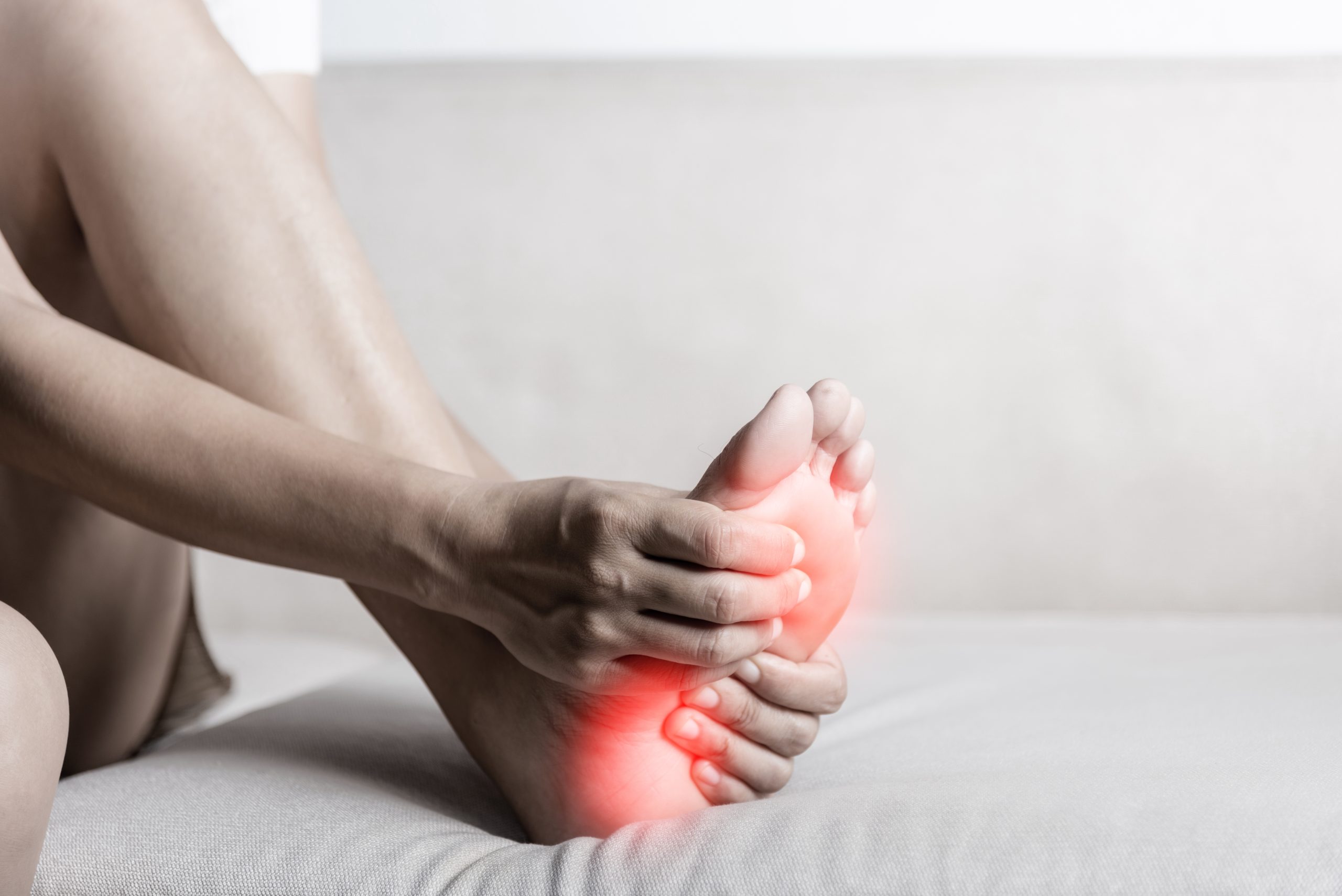A cramp is an unexpected, sudden muscle contraction caused by the nerves’ action. Foot cramps can sometimes linger for a very long time and be very painful, as they are frequently associated with pathologies. Cramping can have a variety of causes, and some demographic groups are more susceptible than others.
Causes of foot cramps: the individual
A person’s health likely has an impact on their tendency to get cramps. The main culprits are typically inadequate hydration, mineral deficiencies, and blood circulation issues.
Cramping in the feet and calves may therefore occur in groups more susceptible to the effects of dehydration, such as the elderly and pregnant women. Magnesium deficiency and a lack of fluids rich in minerals are two things that might cause foot cramps.
Muscle cramps can also affect athletes. Foot cramps can impact any athlete who uses their muscles vigorously and for an extended period. Runners are more prone to them. Heavy perspiration and a lack of warm-up or stretching to help the muscles prepare for exertion and recovery are the causes of the cramp.
It is advised to drink regularly before becoming thirsty, watch your food to avoid deficiencies, and massage the tight muscles to relieve foot cramps. It will be helpful to apply pressure with your foot on a tennis ball or massage it manually.
Causes of foot cramps: diseases
People may be more prone to foot cramps due to some medical issues, particularly illnesses that impact the endocrine, neurological, and blood systems.
For instance, people with diabetes with an unbalanced blood sugar level may suffer from excruciatingly painful cramping in their legs or feet. The nerves respond to significant fluctuations in blood sugar, which causes an abrupt contraction of the muscles.
Meanwhile, Parkinson’s disease stiffens the muscles and can cause cramps in the foot and throughout the body. In this situation, the patient’s pain from the stiffness sometimes makes it difficult for them to continue being active. Interestingly, a lack of mobility frequently brings cramps in the feet.
But as cramps are a phenomenon associated with the drainage of the muscles and their tension, other problems, like blood circulation issues or multiple sclerosis, can also result in foot cramps.
It is typically advised to stretch, massage, and heat the affected area to ease cramps. Of course, drinking plenty of water might also help to prevent cramps. In order to recover a good quality of life, talking to your doctor about their strength and frequency is an excellent first step.
Causes of foot cramps: physical activity
It is tempting to believe that exercising will keep cramps at bay. However, cramps, particularly foot cramps, can also affect athletes. Unpleasant muscle spasms can result from excessive mobility, just as they could with a prolonged sedentary lifestyle.
Before engaging in a persistent effort, it is crucial to warm up the feet to prepare and soften the muscles. Ignoring this step can result in unpleasant surprises like sprains and foot problems, especially if you are running. Targeting the areas, you will be exercising for at least 5 minutes should be enough.
Keep yourself hydrated both before and after the exercise to replenish all the minerals your perspiration will have washed away. During the activity, if you feel thirsty, it is recommended that you drink only small sips to keep moving comfortably.
Last but not least, do not forget to include stretching at the end of your workout. In order to prevent stiffness and tension, it is often necessary to take care of the big muscle groups in the lower body.
Determining the most effective treatment for foot cramps
Whether your cramps are occasional or recurrent, searing or prolonged, their causes can vary. You can get assistance from a PiedRéseau foot care specialist by undergoing a podiatric assessment. The best course of action to take to prevent and treat your foot cramps will subsequently be recommended to you by your podiatrist.

